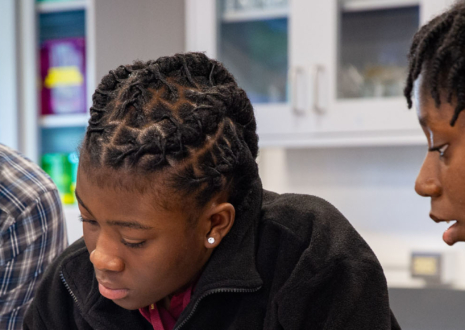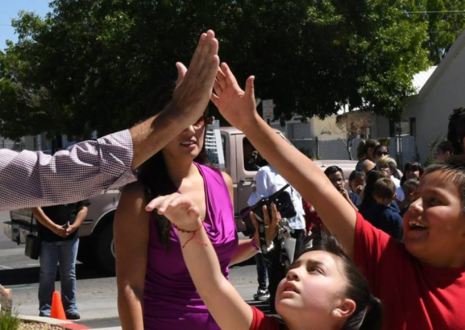Accreditation
Commit to quality with Cognia Accreditation for PreK–12 and postsecondary institutions. Our research-based performance standards give your teams a shared framework to achieve measurable, meaningful improvement.
Pursue excellence with Cognia Accreditation
For more than 125 years, schools have been inviting Cognia and our legacy agencies, NCA CASI, NWAC, and SACS CASI, into their classrooms. Why? Because we go beyond evaluating school quality. We provide trusted expertise and actionable ideas that help schools continuously improve.
Accreditation is the launchpad for school improvement. Based on rigorous research-based standards and evidence-based criteria, the process probes the whole institution—from policies to learning conditions and cultural context—to determine how well the parts work together to meet the needs of every learner.
Accreditation isn’t about passing a one-time inspection—it helps education providers meet improvement goals and sustain commitments to better learner outcomes.
The institution types we serve include:
- Charter schools and charter school authorizers
- Corporations
- Digital learning
- DoDEA
- Early learning
- Education service agencies
- Non-Public including Catholic schools, dioceses, and other faith-based affiliates
- Postsecondary
- Schools
- Special purpose
- Systems
Showcase credibility with Cognia Accreditation
Cognia Accreditation is respected around the world, providing an independent mark of quality in over 90 countries. Our network members value the opportunity for self-assessment combined with independent third-party evaluation—strengthening the credibility the Cognia Accreditation seal brings to a student’s transcript and diploma. Further, the Cognia Schools and Systems of Distinction award recognizes those institutions that truly stand out in their service to learners.
Start your journey
All institutions engage in three main phases of accreditation that guide continuous improvement: Self-Assessment, Engagement, and Progress.
When your Accreditation Engagement Review is complete, the Cognia Global Commission reviews your team’s report. When it confirms that the findings demonstrate your institution’s commitment and quality, it confers your accreditation.

Be inspired by success stories from Cognia schools and systems
Frequently asked questions
What is a Cognia accredited institution?
A Cognia accredited institution has made a commitment to providing high-quality education by undergoing a rigorous process of self-assessment and third-party evaluation by Cognia experts. An institution that seeks to earn Cognia Accreditation applies the Cognia Performance Standards to the unique context of its institution and once confirmed by the Cognia Global Commission, proudly displays a Cognia Accreditation seal to exhibit its dedication to quality.
Is Cognia Accreditation recognized by universities?
Yes, Cognia Accreditation— through our regional accrediting agencies, SACS CASI, NCA CASI, and NWAC—is globally recognized by universities, higher education institutions, state departments of education, and ministries of education. Cognia Accreditation signifies that a school meets or exceeds rigorous standards of educational quality and effectiveness, which can enhance the credibility of the institution and the academic preparation of its students.
Where can I find accredited schools near me?
You can find one of our 40,000 institutions through a search on our website. The system allows you to conduct an advanced search by name, country, state, and institution type.
What kind of time commitment will I need to become accredited?
The time commitment required to become accredited by Cognia can vary depending on the specific circumstances of your institution. In general, the accreditation process involves multiple stages and may span several months. These stages include 1) application, 2) candidacy self-assessment and Cognia-led review, 3) accreditation self-assessment and Cognia-led review, 4) approval by Cognia’s Global Commission which confers accreditation, and 5) ongoing progress monitoring.
Once you earn your initial accreditation, you will be reevaluated and reaccredited every six years.







